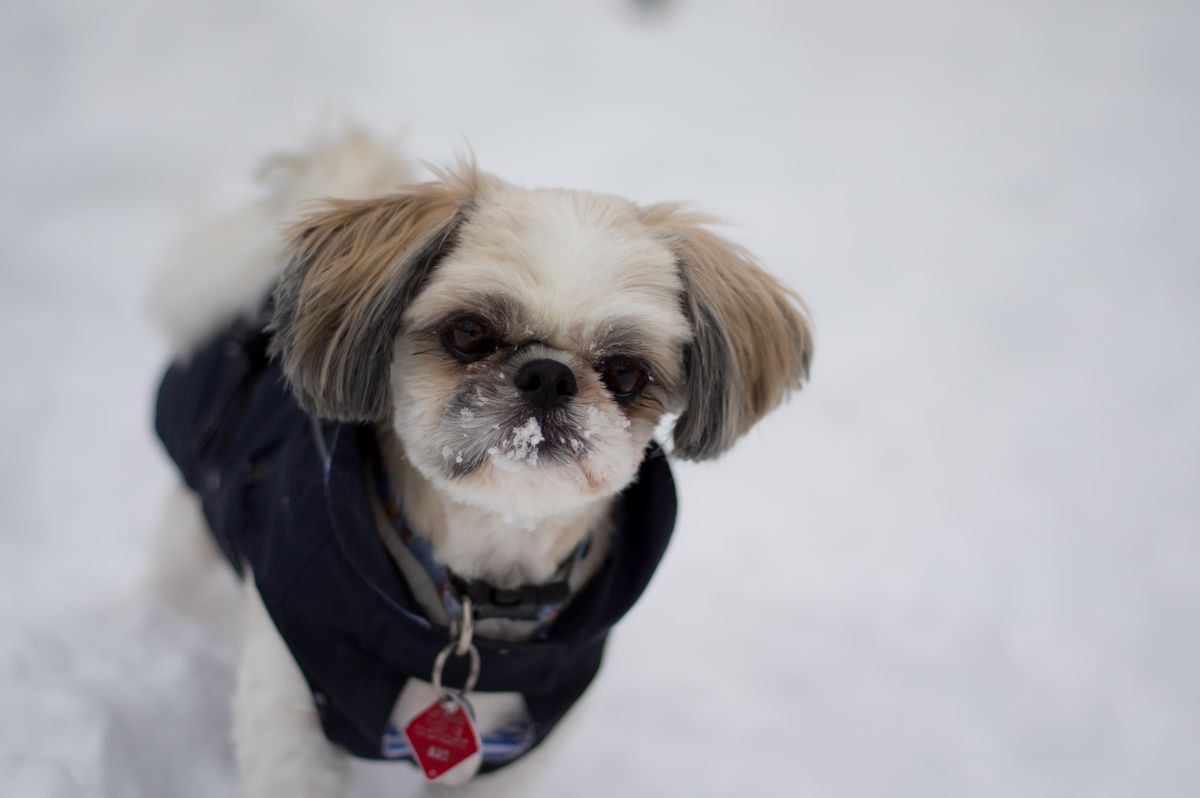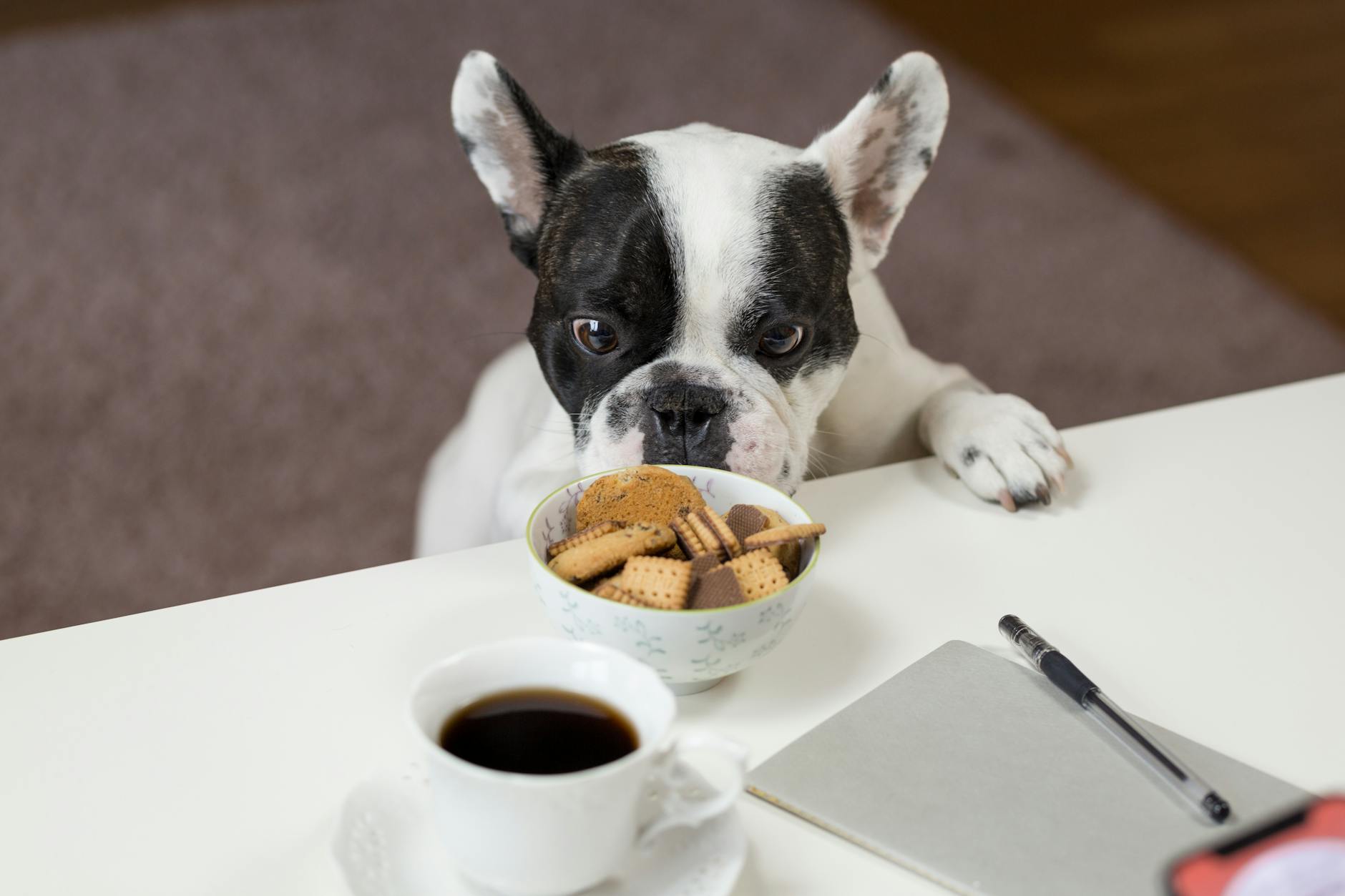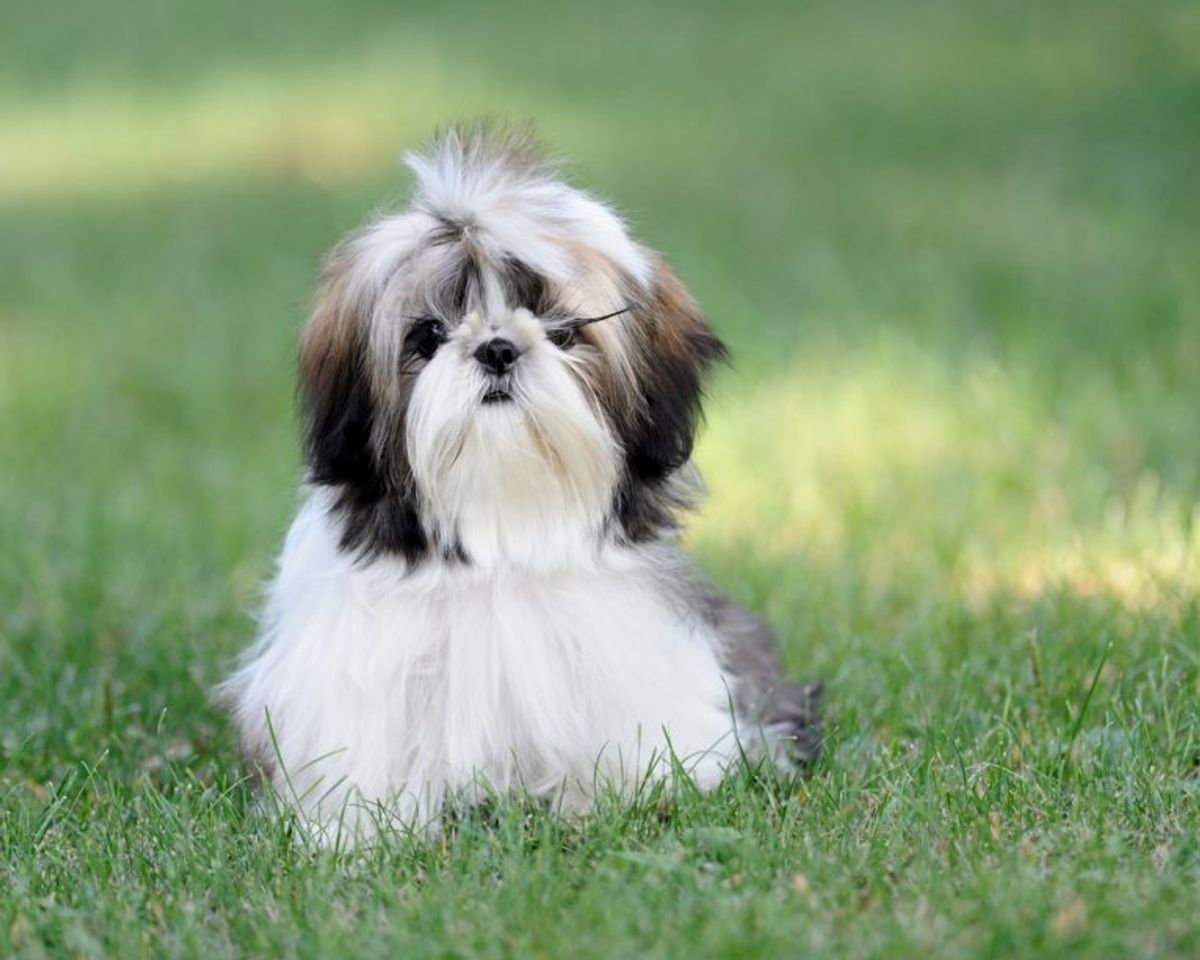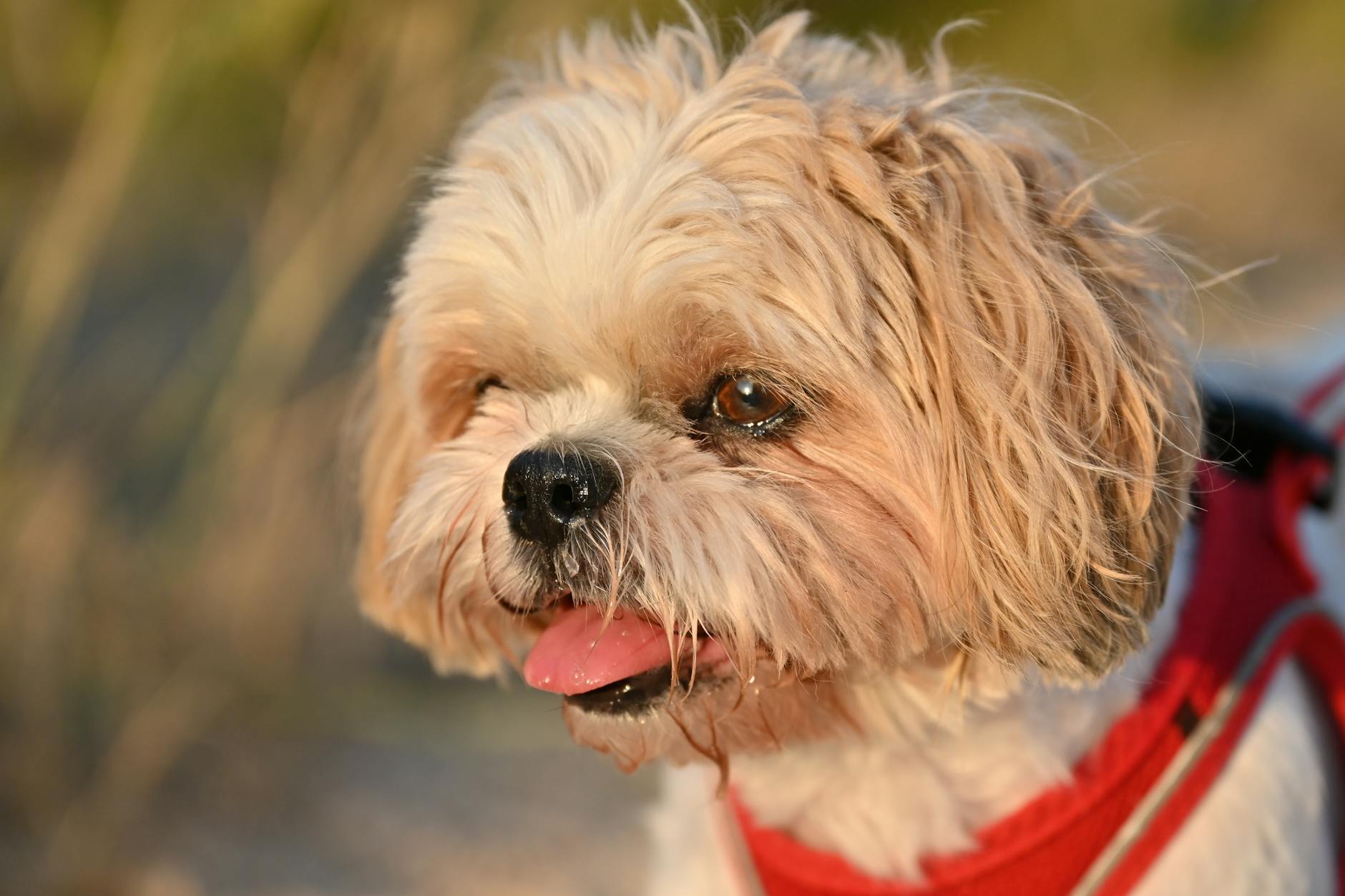Welcoming a Shih Tzu puppy into your home is an exciting journey filled with cuddles, playtime, and a few challenges along the way. As a new pet parent, it’s crucial to focus on your furry friend’s training, health, nutrition, grooming, socialization, and exercise to ensure they grow into a happy and healthy adult dog. This article will provide you with essential tips for Shih Tzu puppy care during the critical first few months, helping your little companion thrive.
Key Takeaways
- Crate and leash training, along with establishing a routine, are foundational steps in your Shih Tzu puppy’s development.
- Healthcare for puppies is paramount, including timely vaccinations, a balanced diet, and awareness of common health issues.
- Regular grooming routines such as brushing, bathing, nail care, and ear cleaning will keep your Shih Tzu’s coat and skin healthy.
- Early socialization and a safe exercise routine contribute to your puppy’s physical fitness and emotional well-being.
- Continuous care, including regular vet check-ups and adapting care as your puppy ages, is essential for a long and happy life.
Setting the Foundation: Training Your Shih Tzu Puppy

Introducing Crate Training
Crate training is a fundamental aspect of raising a well-behaved Shih Tzu puppy. Start by making the crate a welcoming space for your puppy, where they can feel secure and at ease. Place comfortable bedding inside and consider adding a toy or a treat to encourage your puppy to enter voluntarily.
Patience is key when introducing your Shih Tzu to their crate. Take Your Time: Allow your puppy to sniff and explore the crate without pressure. Gradually increase the time they spend inside, always associating the crate with positive experiences.
Consistency in crate training is crucial. Establish a routine where your puppy knows when it’s time to go into their crate, such as during meals or sleep. This helps in setting clear expectations and boundaries.
Remember, crate training is not just about confinement—it’s about creating a personal haven for your puppy where they can retreat and relax. Keep sessions short in the beginning and slowly build up as your puppy becomes more comfortable with their new space.
Leash Training Basics
Leash training is a fundamental aspect of your Shih Tzu’s early education, ensuring they are safe and well-behaved on walks. Start with short, frequent sessions to keep your puppy engaged without overwhelming them. Use a light-weight leash and a comfortable collar or harness to make the experience positive.
Consistency is key when it comes to leash training. Establish a regular training schedule and stick to it. Here’s a simple step-by-step guide to get you started:
- Introduce the leash and collar/harness in a familiar environment.
- Let your puppy wear the collar/harness without the leash for short periods.
- Attach the leash and let your puppy drag it around under supervision.
- Pick up the leash and follow your puppy around, allowing them to lead.
- Gradually start guiding your puppy with gentle tugs and verbal cues.
- Reward your puppy with treats and praise to reinforce good behavior.
Remember, patience is vital during leash training. Your Shih Tzu may resist or become distracted at first, but with gentle guidance and positive reinforcement, they will learn to enjoy their leash time.
It’s important to note that while treats and praise are excellent tools for encouragement, they should be used judiciously to prevent over-reliance. Training your Shih Tzu with positive reinforcement, as highlighted in the snippet from AllShihTzu, can lead to effective and fast training for a number of issues.
Establishing a Routine
Establishing a consistent daily routine is crucial for your Shih Tzu puppy’s development. Consistency is key in helping them feel secure and learn what to expect from their environment. A structured routine includes regular times for meals, bathroom breaks, play, and nap times. This predictability aids in house-training and sets the stage for a well-adjusted adult dog.
Quality time with your puppy is also an essential part of their routine. Engage in activities that foster bonding and provide mental stimulation. Remember, a routine isn’t just about what your puppy does, but also when they do it. Here’s a simple daily schedule to get you started:
- Morning: Wake-up, bathroom break, breakfast, and a short play session.
- Midday: Bathroom break, lunch, and quiet time or a nap.
- Afternoon: Playtime and training exercises.
- Evening: Dinner, bathroom break, and winding down for bedtime.
A predictable routine not only makes your puppy feel secure but also makes training more effective. It’s the foundation upon which all other training is built.
As your Shih Tzu grows, their routine will evolve, but the basics should remain consistent. This will help them transition into adulthood with ease, knowing they can rely on you for their needs.
Health and Nutrition: Building Blocks for Growth

Understanding Puppy Vaccinations
Vaccinations play a crucial role in the health and development of your Shih Tzu puppy. Puppies should undergo a series of vaccinations to build immunity and protect them from serious diseases. The schedule for these vaccinations is typically spread over the first few months of their life, with the final shots given around the 16-month mark.
It’s essential to limit a Shih Tzu puppy’s exposure to public areas until their puppy vaccination series is complete. This precaution helps to prevent the risk of contracting diseases that the young immune system isn’t fully equipped to handle yet.
Vaccinations are not just about protecting your puppy; they are an investment in their long-term health and well-being.
Here is a basic vaccination schedule for your Shih Tzu puppy:
- 6 to 8 weeks: First round of core vaccinations
- 10 to 12 weeks: Second round of core vaccinations
- 14 to 16 weeks: Final round of core vaccinations
- 12 to 16 months: Booster shots
Remember, the exact list of puppy shots depends on your location and the endemic diseases. Always consult with your veterinarian to tailor the vaccination plan to your puppy’s specific needs.
Feeding Your Shih Tzu Right
Ensuring you are feeding your Shih Tzu puppy a proper diet is crucial for their development. Start slowly with the amount of food you give them, and gradually increase as they grow older and become more active. This approach helps prevent obesity and promotes a healthy growth pattern.
A balanced diet for your Shih Tzu should include a mix of proteins, carbohydrates, and essential vitamins and minerals. Here’s a simple guideline for your puppy’s daily diet:
- 20-25% of their daily caloric intake should come from wet food.
- Divide the total food into three meals and two snacks per day.
- Ensure constant access to fresh water, as puppies tend to drink more.
Remember, never give your puppy anything that smells bad or looks like another animal could have eaten it. Freshness is key to a healthy diet.
Incorporate a variety of fresh foods into their diet, such as chicken, beef, lamb, fish, eggs, and cottage cheese. These foods provide high-quality proteins and other nutrients essential for your puppy’s growth. Additionally, chew toys can help satisfy their natural chewing instincts and keep them occupied.
Recognizing and Preventing Common Health Issues
Shih Tzus are generally a hardy breed, but like all dogs, they can be prone to certain health issues. Early detection is key to managing and preventing serious complications. A well-informed owner can make all the difference in their Shih Tzu’s health and well-being.
Some common minor conditions include eye problems, skin rashes, and weight gain. More serious conditions may involve respiratory or joint issues. It’s crucial to be aware of these potential health problems and to monitor your puppy for any signs of illness.
If you notice any changes in your Shih Tzu’s behavior or appearance, consult with your veterinarian promptly. Proactive care can help ensure a long and happy life for your pet.
Remember, factors such as a low fiber diet, insufficient water intake, and lack of exercise can lead to health issues. It’s also important to stay on top of food recalls and to seek advice from a vet if you have concerns. Here’s a list of common health issues to watch for:
- Eye conditions
- Skin rashes or allergies
- Weight gain
- Respiratory problems
- Joint issues
By maintaining a healthy lifestyle and being vigilant about your Shih Tzu’s health, you can prevent many common issues and ensure your puppy thrives.
Grooming Essentials: Keeping Your Shih Tzu Pristine

Brushing Techniques for a Healthy Coat
Maintaining a pristine coat for your Shih Tzu not only enhances their appearance but is also crucial for their overall well-being. Regular brushing is essential to prevent matting and to remove loose hair. Begin with a soft brush, gently working through the coat from head to tail, and pay special attention to areas prone to tangles such as the ears, neck, and tail.
For the best results, incorporate a combination of a pin brush and comb for detangling, and a slicker brush to keep the fur soft and sleek. It’s important to brush the coat every one to three days as part of your routine maintenance to keep the coat healthy and the dog comfortable.
A Shih Tzu’s diet significantly impacts the health of their coat. Ensure your pet receives nutrients like omega fatty acids, which are vital for maintaining the luster and strength of their fur.
Remember, while grooming is a time for care, it’s also an opportunity for bonding. Take this time to check for any signs of skin issues or discomfort, and always approach grooming with patience and love.
Mastering the Art of Bath Time
Bathing your Shih Tzu is more than just a chore; it’s a bonding experience that contributes to their overall well-being. Fill the bathtub halfway up with room-temperature water, ensuring it’s neither too hot nor too cold for your sensitive pup. Gently place your Shih Tzu in the water, using a mild dog shampoo to create a lather that cleans without irritating their skin.
Remember to rinse thoroughly, as residual soap can cause discomfort and skin issues. After the bath, it’s crucial to towel-dry your pet and brush their coat gently to prevent mats and tangles.
Bath time frequency is a common question among Shih Tzu owners. While there’s no one-size-fits-all answer, a good rule of thumb is to bathe your Shih Tzu when they become dirty or their coat starts to become matted. Always use warm water and gentle soap, followed by plenty of rinsing to ensure a clean and happy puppy.
Nail Care and Ear Cleaning
Proper nail care and ear cleaning are vital for your Shih Tzu’s comfort and health. Regular nail trimming prevents discomfort and potential injury from overgrown nails. Use a nail grinder or clippers designed for small breeds, and aim to trim when you start hearing their nails click on the floor. For ear care, gently wipe the outer ear with a soft cloth and a vet-recommended ear solution. After cleaning, allow your Shih Tzu to shake its head to remove excess liquid; this is an important step in preventing ear infections.
Ear infections can be a common issue in Shih Tzus due to their floppy ears. To avoid this, clean their ears once or twice a month using a suitable ear cleaner. Place the recommended number of drops in each ear, then massage the base of the ear gently. Be prepared for a bit of a mess as your dog shakes out the solution.
Remember, while grooming is essential, it’s also a bonding time between you and your Shih Tzu. Make these sessions positive experiences filled with praise and treats, and your puppy will learn to enjoy them.
Socialization and Exercise: Ensuring a Well-Rounded Puppy

The Importance of Early Socialization
Early socialization is crucial for Shih Tzu puppies to develop into well-adjusted adult dogs. Proper socialization can prevent a dog from being fearful of new experiences, including interactions with children and other animals. It’s during the first few months, ideally between four to 12 weeks, that puppies are most receptive to new environments and can easily adapt to various stimuli.
Socialization should not only involve meeting new people and pets but also exposure to different smells, sounds, and sights. This variety helps puppies learn to respond positively to the world around them. A well-socialized Shih Tzu is more likely to exhibit confidence and good manners, making them a joy to have as a companion.
Ensuring your Shih Tzu puppy has a wide range of positive experiences during their early months is key to their long-term temperament and behavior.
Remember, while it’s possible to socialize an adult dog, starting early provides the foundation for a happy, well-mannered pet. Use positive reinforcement to encourage your puppy during socialization, and keep training sessions short to avoid overwhelming them.
Creating a Safe Exercise Routine
Ensuring your Shih Tzu puppy gets the right amount of exercise is crucial for their development. Little and often is key for pups, as their growing bodies need both physical activity and mental stimulation without being over-exercised. Aim for short, frequent sessions rather than long, strenuous ones.
Consistency in your puppy’s exercise routine helps set boundaries and forms a trusting relationship. It reassures your puppy and aids in their learning process, including house-training and socialization. Here’s a simple guideline to follow:
- Start with 5-10 minutes of playtime for very young puppies.
- Gradually increase to 20-30 minutes as they grow older and more energetic.
- Include a variety of activities such as walks, gentle jogs, and interactive play.
Remember, always tailor the exercise to your puppy’s age, health, and energy levels. Avoid strenuous activity during extreme weather, especially heat, as Shih Tzus can overheat quickly.
By creating a safe and adaptable exercise routine, you’ll help your Shih Tzu puppy grow into a well-rounded and content adult dog.
Interactive Play and Mental Stimulation
Interactive play is not just about keeping your Shih Tzu physically active; it’s a crucial component for their mental well-being. Engaging your puppy in various forms of play can prevent boredom and discourage destructive behavior. Toys that cater to the seven needs of a Shih Tzu—teething, boredom, chew, retrieval, learning, treat release, and companionship—are invaluable.
Shih Tzu puppies thrive on attention and affection. Incorporating playtime into your daily routine strengthens your bond and provides essential mental stimulation.
While physical exercise is important, mental challenges are equally vital. Puzzle games, obedience training, and agility courses can keep your Shih Tzu’s mind sharp and engaged. Remember, a mentally stimulated Shih Tzu is a happy and well-behaved companion.
Long-Term Care and Considerations

Regular Veterinary Check-Ups
Ensuring your Shih Tzu puppy’s health is paramount, and regular veterinary check-ups are crucial for maintaining their well-being. Puppies require a series of visits to the vet, primarily for vaccinations and early health checks, which may include spaying or neutering. As they grow into adulthood, their health needs change, but the importance of annual boosters and health checks remains.
It’s essential to establish a schedule for your puppy’s vet visits. Puppies should get their first checkups when they’re 2 to 3 weeks old. While you may not have a puppy this young unless you’re a breeder or rescuer, it’s important to continue with regular appointments as recommended by your vet.
Adult dogs may face age-related conditions that need monitoring or treatment, such as joint pain. Therefore, adapting the frequency of veterinary visits as your Shih Tzu ages is important. Here’s a basic guideline for vet visits:
- First year: Multiple visits for vaccinations and health checks
- Adult years: Annual boosters and health checks
- Senior years: More frequent visits to monitor age-related conditions
Remember, the best pet insurance can help offset the costs of these essential visits. Always consult with your vet to tailor the schedule to your Shih Tzu’s specific needs.
Adapting Care as Your Shih Tzu Ages
As your Shih Tzu transitions from the playful puppy phase into their golden years, their care requirements will evolve. Regular health check-ups become increasingly important to monitor for age-related conditions. It’s essential to adapt your approach to their diet, exercise, and grooming to match their changing needs.
Italics are not just for emphasis, but also to highlight the importance of understanding your aging Shih Tzu’s unique requirements. For instance, senior Shih Tzus may need food with different nutritional content to support joint health and maintain a healthy weight.
As a Shih Tzu ages, their energy levels and mobility may decline. Adjusting their exercise routine to include gentler, more frequent walks can help maintain their physical and mental well-being without overexertion.
Remember, the bond you share with your Shih Tzu is strengthened through the care you provide. Acts of service that enhance their comfort and well-being are deeply appreciated by this breed and are a true expression of your love and dedication.
The Role of Love and Patience in Puppy Care
Caring for a Shih Tzu puppy is a journey that requires not just knowledge and skill, but also a great deal of love and patience. The bond that you build with your puppy during these formative months will set the tone for your relationship for years to come.
Patience is key when navigating the ups and downs of puppyhood. Yes, with patience, you will get through your dog’s ‘teen’ years, and working through your pup’s adolescence with patience, training, and predictable daily routines leads to confident, calm adult dogs.
Puppies, like all young animals, go through various stages of development. During these stages, they will test boundaries and learn about the world around them. It’s important to remember that:
- Consistency in training and care is crucial.
- Positive reinforcement helps in shaping desired behaviors.
- Each puppy is unique and may require different approaches to training.
As your Shih Tzu matures, the playful energy of puppyhood will give way to a more settled demeanor. However, the need for a loving and patient approach to care remains constant. By providing this, you ensure a well-adjusted and happy adult dog, capable of forming a deep and rewarding relationship with you.
Conclusion
As we’ve explored in this guide, caring for a Shih Tzu puppy during the first few months is a delightful journey that requires attention, love, and a bit of know-how. From selecting the right training equipment and understanding their basic health care needs to grooming and feeding them appropriately, every step is crucial for their development. Remember to consult your veterinarian for personalized advice, keep your puppy active with regular walks and playtime, and always prioritize their safety. With these essential tips and your commitment, your Shih Tzu puppy is set to grow into a happy, healthy, and well-adjusted companion. Thank you for joining us on this adventure in puppy care, and may your days with your furry friend be filled with joy and wagging tails.
Frequently Asked Questions
What is the best way to introduce crate training to my Shih Tzu puppy?
Start by making the crate a comfortable and inviting space. Place soft bedding inside and encourage your puppy to enter with treats and toys. Keep initial sessions short and gradually increase the time your puppy spends in the crate.
How often should I feed my Shih Tzu puppy?
Feed your Shih Tzu puppy three meals a day, with two snacks in between. Ensure the diet is well-balanced, including proteins, carbohydrates, and essential vitamins and minerals. Adjust portions as the puppy grows and becomes more active.
What vaccinations does my Shih Tzu puppy need?
Your Shih Tzu puppy will need a series of vaccinations starting at around 6 to 8 weeks of age. These typically include shots for parvovirus, distemper, hepatitis, and rabies. Consult with your veterinarian for a vaccination schedule.
How should I groom my Shih Tzu puppy?
Groom your Shih Tzu puppy by regularly brushing their coat with a suitable brush, giving them baths with gentle soap and warm water when needed, and ensuring their nails and ears are cleaned and maintained.
How can I socialize my Shih Tzu puppy effectively?
Expose your Shih Tzu puppy to various people, animals, and environments from an early age. Keep interactions positive and controlled, and use treats and praise to reinforce good behavior. Avoid overwhelming your puppy with too much at once.
What are the common health issues I should watch out for in my Shih Tzu puppy?
Keep an eye out for signs of respiratory issues, eye problems, and hip dysplasia, which are common in Shih Tzus. Regular check-ups with your vet can help prevent and manage these health concerns.




